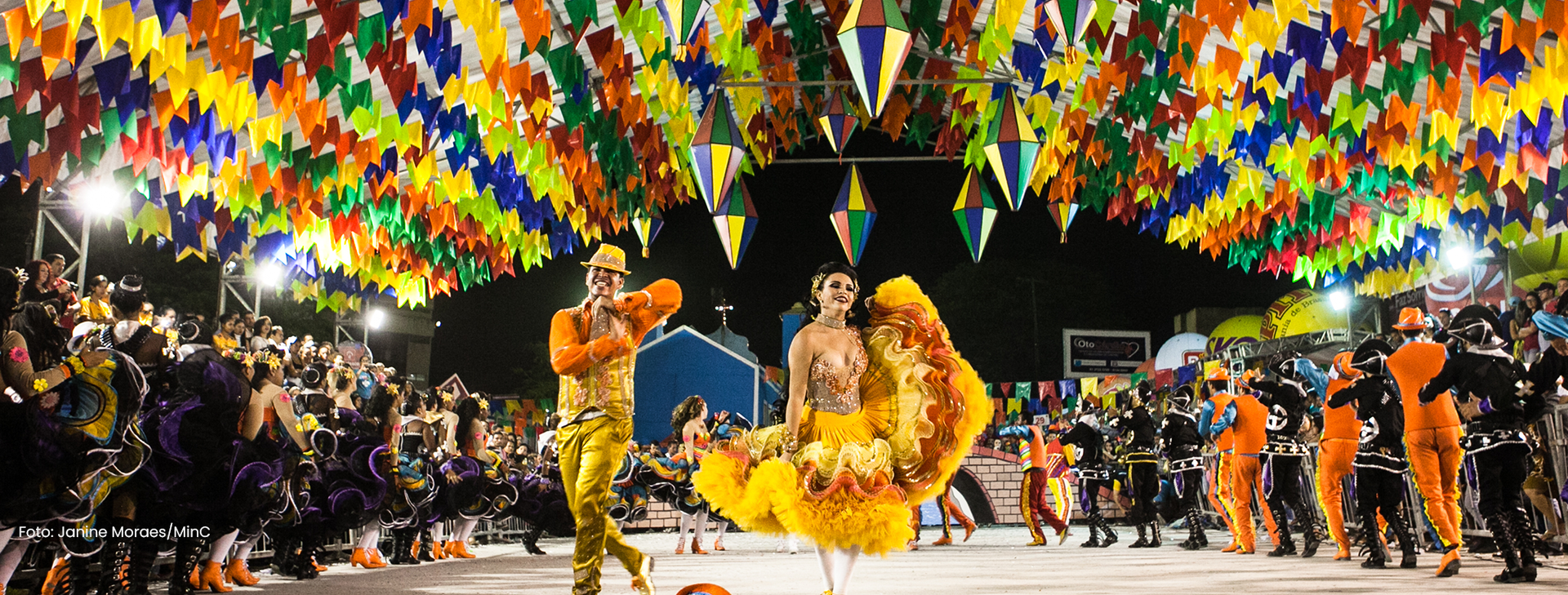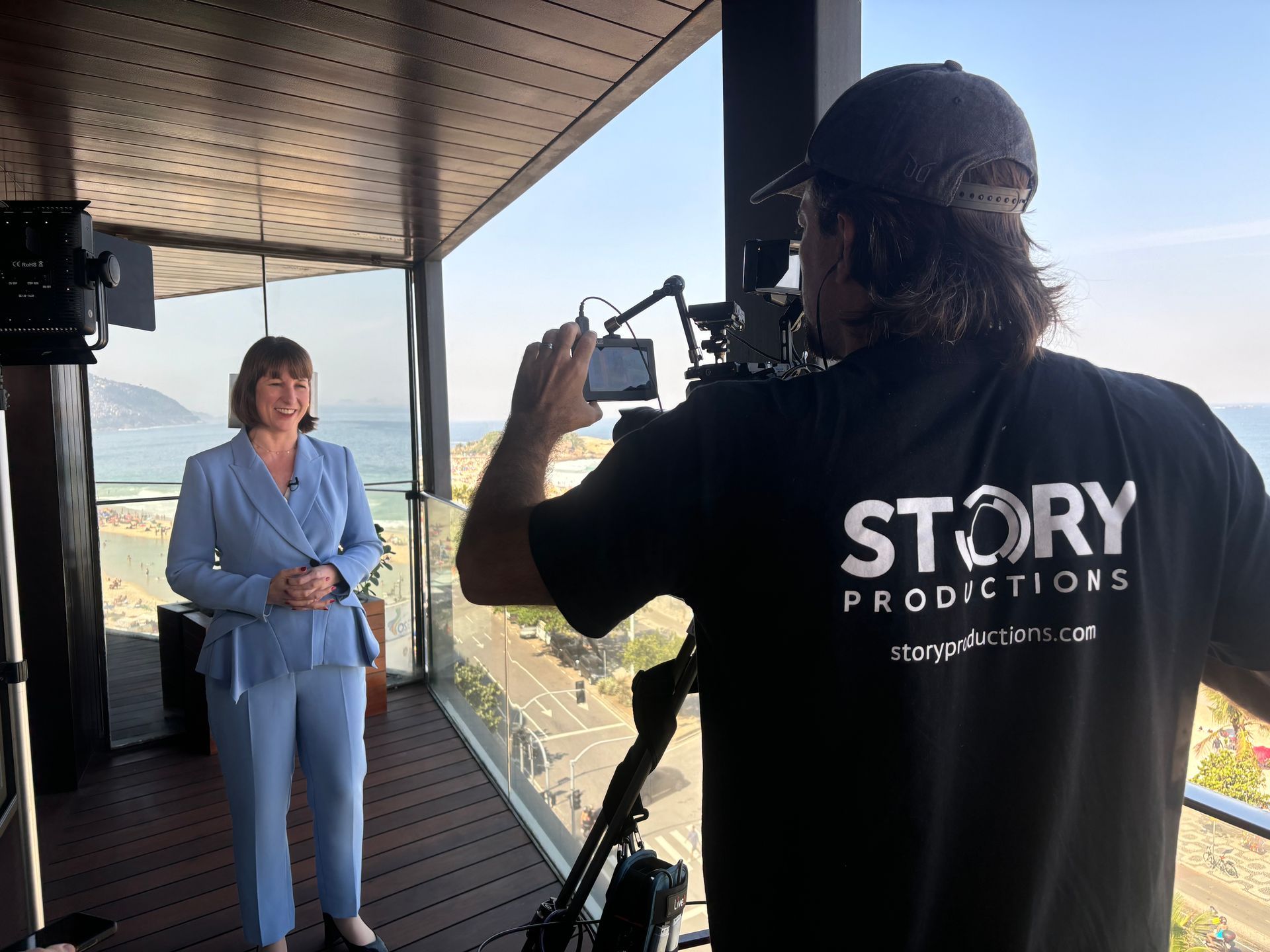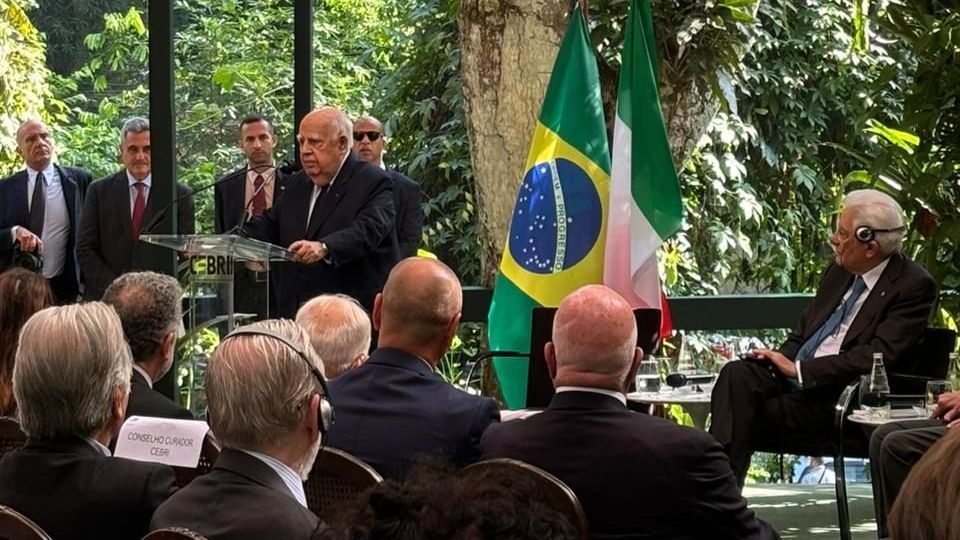"Baby" - Anatomy of a Brazilian success at Cannes: the co-Production route for Brazilian Filmmakers
At Story Productions, we celebrate standout Brazilian cinema, even when it’s not our own work.
Baby, directed by Marcelo Caetano and produced by Ivan Mello, is one such project—a film by Brazilian filmmakers that earned a Critics’ Week award at the 2024 Cannes Film Festival.[^1] During a panel at Cinemateca Brasileira, organized by SP Cine,[^2] Caetano and Mello, joined by SP Cine president Lyara Oliveira, discussed the film’s path from São Paulo to global recognition. While SP Cine contributed, Baby’s success also reflects broader efforts in Brazil’s audiovisual landscape. Here, we explore its co-production process, spotlighting a story that resonates beyond any single institution’s role.
A São Paulo Narrative with International Ambitions
Baby, Caetano’s second feature after Corpo Elétrico (2017),[^3] tells the story of a young man exiting juvenile detention who forms a complex relationship with a middle-aged sex worker—an LGBTQ-themed melodrama set in São Paulo’s bustling downtown. Caetano, known for shorts like Bailão (2009)[^4] and Companhia (2018),[^5] and the series Notícias Populares,[^6] has long explored queer identities, filming in São Paulo for 15 years. For Baby, shot over five weeks, he kept streets alive with movement, blending the city’s raw pulse into the frame. The São Paulo Film Commission, linked to SP Cine, aided this urban shoot.
Funding began with a 2019 low-budget grant from SP Cine, supplemented by Vitrine Filmes,[^7] Canal Brasil,[^8] and later Ancine’s Fund,[^9] enabling partnerships with France’s Still Moving[^10] and the Netherlands’ Circe Films.[^11]
Navigating Co-Production Dynamics
The idea for Baby emerged at Rotterdam’s Film Festival during Corpo Elétrico’s premiere, where Caetano and Mello pitched to international producers. Co-production went beyond finances, involving creative input from French and Dutch partners who influenced scripts, cuts, and crew, including a French sound technician and Dutch foley artist. The budget reached €500,000, with funds from France’s CNC Cinema du Monde,[^12] the Netherlands Film Fund,[^13] and Ancine, building on early local support.
Caetano noted a trend: Brazilian films at Cannes—like Baby, Karim Aïnouz’s Motel Destino,[^14] and Eryk Rocha’s entry—often feature co-productions, especially with France, boosting festival placement and distribution. Mello countered that co-production isn’t essential; films like Que Horas Ela Volta?[^15] succeeded without it. For Baby, the international approach paid off, securing sales in 15 countries and 23 festival invitations.
Casting and Creative Production
A key strategy for Marcelo Caetano was selecting creative co-producers. "I direct, write, and create, which greatly facilitates adaptations for business rounds and grants. This mindset extends to the team involved. The chosen production companies participated in all script stages and had input in casting. The team comprised professionals from Brazil and the other involved countries. The sound technique is French, and so is the editor."
Cinematic Narrative and Sociopolitical Themes
The journey to Cannes was fraught with challenges, particularly in adapting and understanding the expectations of foreign financiers regarding what constitutes a "Brazilian film" in the international market.
"We often present grant proposals that resemble academic work, highlighting social issues and sociopolitical themes. However, competing countries also tackle these same issues. We secured funding when we emphasized the cinematic narrative more. We didn’t bring the city to a standstill to film, which was very challenging. The scenes retain background noise. We found a way to film that respected the city's authenticity on screen," explains Ivan Melo.
Regarding maintaining the script's originality amidst diverse cultures and perspectives, Marcelo concludes: "There's sometimes a disconnect with Brazilian reality, but you must stand your ground and defend your film. It's amazing to participate in festivals, but we want it to reach cinemas and audiences there too."
From Production to Cannes
Filming wrapped in October 2023, leaving a tight window for a February 2024 Cannes submission. Caetano edited relentlessly, backed by French producer Juliette Lepoutre, whose prior Critics’ Week win with Tiger Stripes (2023)[^16] added credibility. A rough cut with partial color correction and a scratch mix was hand-delivered to selectors, ensuring optimal viewing—a common industry tactic. Festival travel support came from SP Cine, Canal Brasil, and Vitrine Filmes, enabling the team’s Cannes presence.
Reflections on Brazilian Cinema’s Ecosystem
Securing national support from SP Cine was crucial to kickstart international investments for this project. Baby’s journey illustrates the complexity of making films nowdays.
This initial support triggered vital subsequent co-productions in Brazil, with backing from Telecine, Canal Brasil, and Vitrine Filmes, which also handles distribution. Public resources came from the National Cinema Agency (Ancine) with support from Aide Aux Cinémas Du Monde, Centre National Du Cinéma et de l’Image Animée, and Institut Français. The Hubert Bals Fund (HBF) from the Rotterdam Festival and the Netherlands Film Fund (NFF) also provided backing.
Baby stands out as a flagship for the current São Paulo Film Commission, which prioritizes diversity and inclusion in its funding and support strategies. This focus aligns with Baby’s queer narrative, positioning it as a standard-bearer for a commission attuned to contemporary social themes.
The film’s Cannes success underscores its resonance with today’s international festival circuit, where genres exploring identity and marginality hold significant currency.
Share this story:
Get the latest news straight into your inbox!
Contact Us
Read another story













